Abbiamo intervistato Tijana T, la DJ di Belgrado che negli ultimi 20 anni ha saputo esplorare l’universo musicale nelle sue molteplici sfumature, regalandoci la sua prospettiva brillante sui cambiamenti che coinvolgono il clubbing e la musica in generale.
Come ogni fenomeno naturale e sociale, anche il clubbing si è evoluto negli anni seguendo un ideale di libertà che, di volta in volta, si esprime in modo diverso e pone le basi per quella che chiamiamo “clubculture”. Tra i cambiamenti più interessanti che coinvolgono la scena musicale attuale c’è sicuramente l’elevata presenza di donne. Abbiamo avuto il piacere di approfondire questo tema, e non solo, con la brillante artista di Belgrado Tijana T.
Possiamo dire che la scena era migliore 20 anni fa? Il talento delle donne è ancora subordinato all’immagine? È possibile costruire una carriera nel settore pur provenendo da un contesto limitante? Queste sono solo alcune delle domande a cui abbiamo provato a rispondere con Tijana T, che si è esibita il 17 maggio sul Tropicana Stage del Sunny Side Festival.
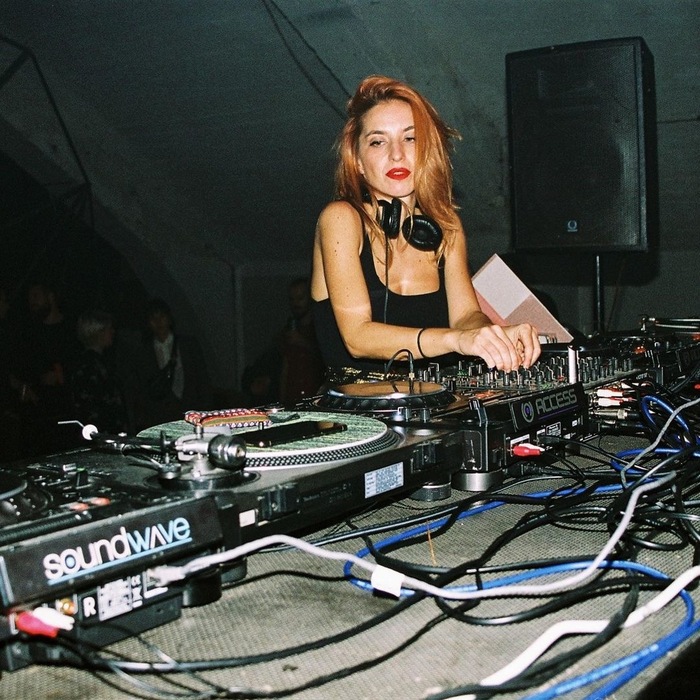
Sono trascorsi più di 20 anni da quando Tijana T ha mosso i primi passi nella scena underground di Belgrado, tra le apparizioni su noti programmi televisivi e radiofonici nazionali e i primi DJset. Nel 2024 il suo nome esporta il sound serbo in tutto il globo, contando performance nei club più ambiti dagli artisti di tutto il mondo quali Berghain, Fabric, DC-10 e molti altri.
Ciao Tijana T, benvenuta su Parkett. È un piacere poter parlare con una delle donne più dinamiche della scena contemporanea. Analizzando i mutamenti che negli ultimi anni coinvolgono la scena clubbing, cosa pensi sia cambiato? Secondo te tali cambiamenti rendono la scena migliore o peggiore rispetto agli anni in cui ti sei avvicinata a questo mondo?
Non entrerei in qualificazioni come “migliore” o “peggiore”. In ogni contesto puoi trovare qualcosa di meglio o peggio, le cose sono semplicemente diverse, il che è naturale, niente rimane mai uguale. A livello globale ciò che fa la differenza oggigiorno è l’abbondanza di tutto, ci sono più club, più DJ, più festival, più musica e più persone interessate alla musica elettronica. Questo è diverso rispetto a qualche anno fa.
La tecnologia si sta sviluppando e tutti possono creare musica elettronica e accedervi. Le cose sono più veloci di prima (non sto parlando di BPM), quindi è più veloce vedere le carriere di DJ o produttori andare e venire nel giro di un anno o in un tempo molto breve, da allora il pubblico ha anche un periodo di attenzione un po’ più breve, saltando da un palco all’altro ai festival ad esempio, e così via.
Ancora non so se sia meglio o peggio. Non voglio essere il giudice su questo.
Quello che mi piace di più dei “cambiamenti” nell’industria della musica elettronica è che ci sono così tante donne là fuori, nel mondo del business e anche come producers e DJ. Credo sia molto importante che la natura femminile influenzi i suoni e i movimenti nel mondo della musica elettronica.
La democratizzazione della musica, che la rende un prodotto accessibile a tutti (sia per fruizione che per creazione), ne determina una perdita di valore in termini qualitativi oppure costituisce un fattore positivo legato alla possibilità di chiunque di approcciarsi alla musica?
Nella mia visione della musica, non appartiene a nessuno. La musica è sempre stata accessibile a tutti. Il canto è musica, è qualcosa che ognuno di noi può riprodurre e a cui ognuno di noi può accedere. L’unica differenza è che ora la musica viene registrata, può essere riprodotta e questo è qualcosa di relativamente nuovo nella storia dell’umanità. Come hai detto, è diventata un prodotto. Al momento quello che mi manca di più in termini di qualità sono le grandi canzoni, come quelle pop che abbiamo avuto ad un certo punto, grandi successi. Ma ciò non significa che non esistano, forse sono semplicemente perse nel rumore bianco e non trovano la strada per raggiungere un pubblico di massa.
Quindi non posso davvero dire che la qualità stia diminuendo, non so se sia così. Voglio credere che il fatto che tutti abbiano accesso alla musica e creino musica sia una buona cosa. È un po’ più giusto. Al giorno d’oggi non è necessario essere privilegiati per poter creare arte. Questa è una buona notizia. Se una persona non privilegiata possa farne una carriera è un argomento completamente diverso.
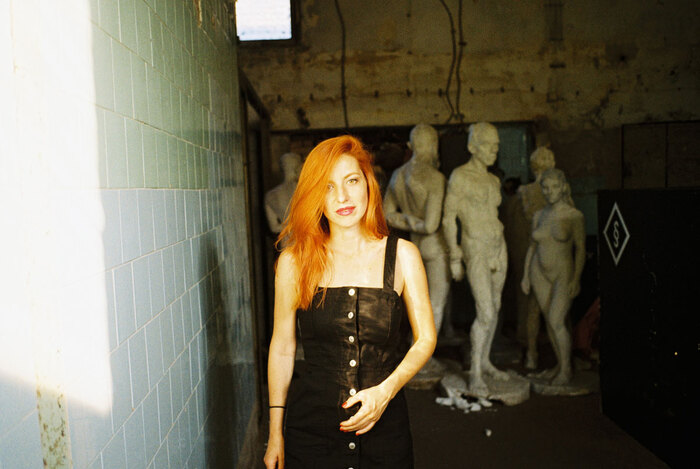
Credi che nella scena clubbing contemporanea il talento femminile venga davvero riconosciuto lasciando da parte i pregiudizi che subordinano il talento all’immagine?
È un argomento molto complicato. Penso che la femminilità venga sempre sfruttata dall’industria musicale in una forma o nell’altra. È positivo che le donne siano arrivate al punto di poter rivendicare la propria sessualità, di rivendicare il proprio corpo, di esprimersi in ogni modo possibile, ma non mi piace molto che questo venga sfruttato dagli algoritmi dei social media e alla fine crei profitto altrove.
Per quanto riguarda i pregiudizi le cose sono cambiate, in qualche modo abbiamo imparato che l’immagine non deve corrispondere al talento e viceversa. Non è così facile liquidare qualcuno al giorno d’oggi a giudicare dal suo aspetto.
Il nome di Tijana T è associato all’iconica emittente televisiva e radiofonica B92, che tra gli anni ’90 e ’00 dava voce a realtà sociali e musicali che venivano censurate dagli enti nazionali. Nell’era della musica in streaming, credi che questi mezzi tradizionali, in particolare la radio, abbiano ancora un ruolo preponderante nella diffusione musicale, sopratutto elettronica?
Sì, B92 era uno dei media in cui lavoravo e creavo show musicali. Prima di diventare una DJ ho fatto il selezionatore radiotelevisivo e la giornalista/reporter. Penso ci sia ancora bisogno di contenuti curati e selezionati. Alla gente piace seguire certi DJ e i loro consigli sulle piattaforme di streaming. Le persone ascoltano ancora i mix e alcune stazioni radio su Internet sono ampiamente influenti.
Direi che c’è ancora più bisogno di curare i contenuti poiché ce ne sono così tanti là fuori che le persone tendono a perdersi. Non è una coincidenza che l’intelligenza artificiale venga sviluppata per selezionare i contenuti per te. Ma abbiamo ancora esseri umani, esseri umani informati con un’anima che possono farlo sotto forma di radio o simili.
Il tuo è sicuramente un amore per la musica a 360°, ed è proprio la tua carriera a mostrare i traguardi che questo sentimento così forte ti ha permesso di raggiungere. Il tuo ruolo nella scena musicale nasce nella Belgrado di fine anni ’90, caratterizzata da disordini di carattere sociale e politico. In che modo sei riuscita a superare i limiti imposti dalla tua città d’origine? Che consiglio daresti a chi, come te, vorrebbe avviare una carriera in questo ambito pur provenendo da un contesto potenzialmente limitante?
Ero ancora un’adolescente alla fine degli anni ’90, ma tutti noi a Belgrado avevamo la tendenza a iniziare a uscire presto. La mia città mi ha davvero definito, anche se non è stato così facile entrare nella scena internazionale da lì. La mia esperienza nella mia comunità e nel mio contesto locale è stata probabilmente la più importante per la mia carriera. Belgrado ha una seria tradizione di clubbing e un gusto musicale davvero sofisticato quando parliamo di musica elettronica.
L’istruzione che ho ricevuto lì è ciò che mi ha fatto guadagnare rispetto a livello internazionale. La mia scuola da DJ a Belgrado è stata dura e penso che i tempi siano cambiati e sia molto più facile per i DJ più giovani, soprattutto per le ragazze che non devono più subire bullismo e umiliazioni. Semplicemente non è possibile farla franca di questi tempi. Ero determinata a continuare a fare ciò in cui credo ed è così che sono riuscita a superare tutto, con pura caparbietà e determinazione. Se lavori abbastanza duro, le persone iniziano a riconoscerlo e lo sforzo viene ripagato.
Consiglierei alle persone che provengono da contesti simili di fare davvero tutto ciò che possono nel proprio ambiente. Trasferirsi a Berlino, dove hai un milione di altri DJ, potrebbe potenzialmente essere un’esperienza che spezza l’anima. Costruisci qualcosa nella tua città e usalo come biglietto da visita altrove. Mantieni i tuoi contatti internazionali, connettiti con persone a livello globale, ma cerca di fare la differenza nella tua comunità, a casa. Con questo risultato sarà più facile conquistare il mondo.
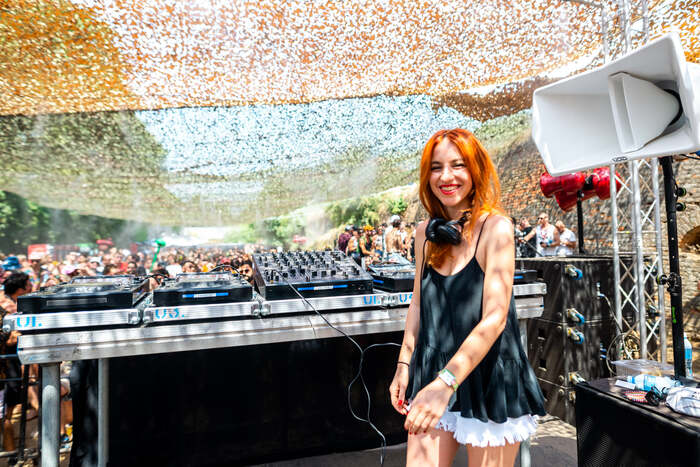
Il 2013 rappresenta per te un anno speciale: sei stata la prima artista serba ad esibirsi dietro la consolle dello Space Ibiza. Come ti sei sentita?
Mi sentivo davvero potente. Ricordo chiaramente quella data. Ero eccitata e nervosa, ma sentivo anche di essere lì per rivendicare il mio potere.
Dal 2016 il tuo sound unico, contaminato da acid-techno, electro, breakbeat, house e trance ha definitivamente oltrepassato le barriere di Belgrado ed è arrivato in 6 continenti, contando più di 400 shows in 50 paesi. Il 17 maggio ti esibirai nel Tropicana Stage del Sunny Side Festival, che porterà nell’isola di Malta un mix tra avanguardia e tradizione della scena underground. Cosa possiamo aspettarci dal tuo DJset? In generale, il contesto in cui suoni quanto influenza la selezione musicale di Tijana T?
Sono stata davvero felice di suonare in questo contesto, sono stata considerata una DJ techno e sono stata inserita in line up techno per molto tempo. Sono felice che ora sia possibile per me presentare tutti gli aspetti della mia selezione musicale. Farò del mio meglio per suonare un set vario ed emozionante, pur capendo che questo è un festival per intenditori sofisticati e fanatici del vinile :).
Recentemente ho detto che voglio suonare in modo più minimale e questa potrebbe essere una buona opportunità. Vengo sempre con la mente aperta alle serate e con tutta la mia collezione, perché non si può mai prevedere cosa accadrà sulla pista da ballo. Per citare le famose parole: “Lascia che il ritmo ti prenda!”
Concludo ringraziandoti a nome di Parkett, e chiedendoti se c’è qualche progetto tra quelli a venire che ti entusiasma particolarmente.
Sto lavorando ad alcuni progetti al momento, non posso davvero condividere di cosa si tratta, ma potreste ascoltare le mie produzioni e la mia voce molto presto.
ENGLISH VERSION
Wa talked to Tijana T, the DJ from Belgrade who over the last 20 years has been able to explore the musical universe in its many nuances, giving us today her brilliant perspective on the changes involving clubbing and music in general.
Like any natural and social phenomenon, clubbing has also evolved over the years following an ideal of freedom which overtime expresses itself differently and lays the foundations for what we call “clubculture”. Among the most interesting changes that involving the current music scene there is certainly a high presence of women. We had the pleasure of exploring this topic, and more, with the brilliant Belgrade artist Tijana T.
Can we say that the scene was better 20 years ago? Is women’s talent still subordinate to image? Is it possible to build a career in the sector despite coming from a limiting context? These are just some of the questions we tried to answer with Tijana T, who played on Friday 17 May on the Tropicana Stage of the Sunny Side Festival.
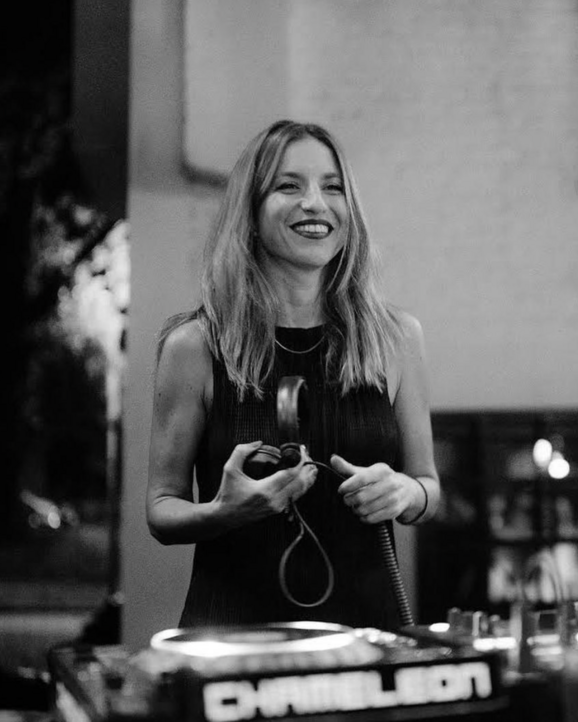
More than 20 years have passed since Tijana T started taking her first steps in Belgrade’s underground scene, between appearances on well-known national television and radio programs and the first DJ sets. In 2024, Tijana T’s name will export the Serbian sound across the globe, featuring performances in the most coveted clubs by DJs around the world, such as Berghain, Fabric, DC-10 and many others.
Hi Tijana T, welcome to Parkett. It’s a real pleasure to be able to talk to one of the most dynamic women on the contemporary scene. Analyzing the changes that have affected the clubbing scene in recent years, what do you think has changed? In your opinion, do these changes make the scene better or worse than when you first started clubbing?
I would not go into qualifications such as “better” or “worse”. In every context you can find something better and something worse. Things are just different, which is natural, nothing ever stays the same. Globally speaking what makes the difference these days is the plentitude of everything, there are more clubs, more DJs, more festivals, more music and more people interested in electronic music. This is different than it was just a few years ago. Technology is developing and everyone can create electronic music and get access to it. Things are faster than they were before (I’m not talking about BPMs) so it’s faster to see DJ or producer careers come and go within a year or in a very short time, the audience also has a bit of a shorter attention span since they are usually at festivals hopping from one stage to another and so on.
Still I don’t know if this is better or worse. I don’t want to be the judge on that.
What I like the most about “the changes” in the electronic music industry is that there are so many women out there, in the business and also as producers and DJs. I believe it’s very important to have feminine nature influence the sounds and movements within the electronic music world.
In your opinion, the democratization of music, which makes it a product accessible to all (both for its enjoyment and creation), determines a loss of value in qualitative terms or constitutes a positive factor linked to the possibility of anyone to being able to approach music?
In my understanding of music – it does not belong to anyone. Music was always accessible to all. Singing is music, this is something that each one of us can reproduce and each one of us can access. The only difference is that music is now being recorded, it can be replayed and this is something relatively new in the history of mankind. As you said – it has become a product. At the moment what I’m missing the most in terms of quality is big songs, like great pop songs that we had at some point, big hits. But it doesn’t mean that they don’t exist, maybe they’re just lost in the white noise and they’re not finding a way to mass audience.
So I can’t really say that quality is going down, I don’t know if it is. I want to believe that everyone having access to music and creating music is a good thing. It’s a bit more fair. These days you don’t have to be privileged to be able to create art. That’s good news. If an unprivileged person can make a career out of it is an entirely different topic.
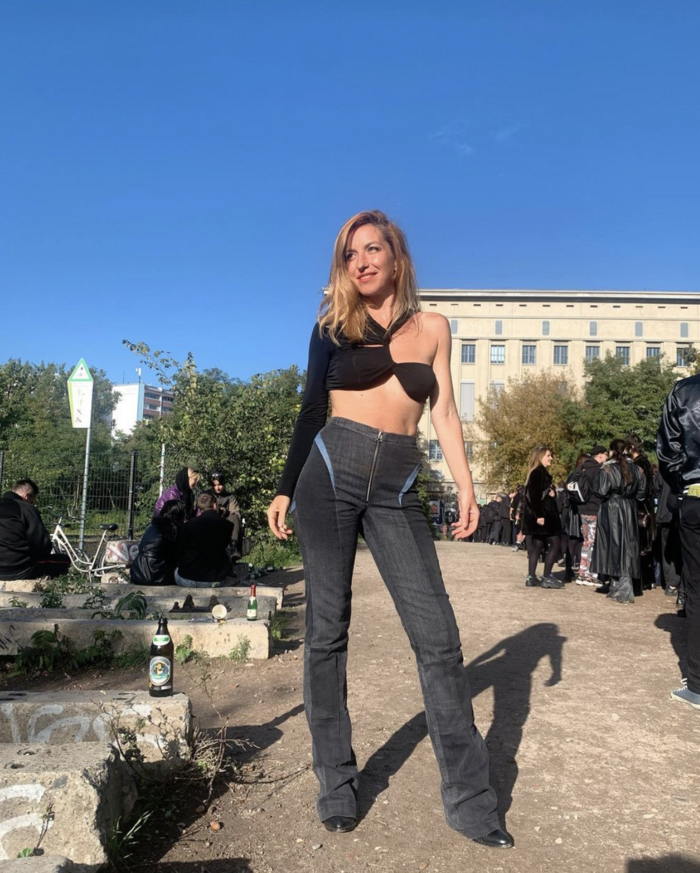
In your opinion, is female talent really recognized in the contemporary clubbing scene, leaving aside the prejudices that subordinate talent to image?
It’s a very tricky subject. I think femininity is forever being exploited by the music industry in one form or another. It’s good that women have come to the point that they can claim their sexuality, they can claim their bodies, they can express themselves in any possible way, but I don’t really like the fact that this is exploited by social media algorithms and in the end it creates profit elsewhere.
As for prejudice, things have changed, somehow we’ve learnt that the image does not have to correspond to the talent and vice versa. It’s not so easy to dismiss someone these days judging by their looks.
Yours is definitely a 360° love for music, and it is your career that shows the goals that this strong feeling has allowed you to achieve. Your role in the music scene was born in Belgrade at the end of the 90s, characterized by social and political unrest. How did you manage to overcome the limits imposed by your city of origin? What advice would you give to those who, like you, would like to start a career in this field despite coming from a potentially limiting context?
I was still a teenager at the end of the 90s, but we all had this tendency to start going out at an early age in Belgrade. My city really defined me and even though it was not so easy to step into the international scene from there my experience in my own community and my local context were probably the most important for my career. Belgrade has a serious clubbing tradition and seriously sophisticated music taste when we talk about electronic music.
The education I got there is what got me respect internationally. My DJ schooling in Belgrade was a tough one and I think the times have changed and it’s much easier for younger DJs especially girls, they don’t have to go through bullying and humiliation anymore, it’s just not possible to get away with it these days. I was determined to continue doing what I believe in and that is how I managed to overcome everything, by pure stubbornness and determination. If you work hard enough people start recognizing that and the effort pays off.
I would advise people who come from similar backgrounds to really do as much as they can in their own surroundings. Moving to Berlin where you have a million other DJs could potentialy be a soul breaking experience. Build something in your own city and use it as your business card elsewhere. Keep your international contacts, connect with people globally, but try to make a difference in your own community, at home. With that achievement it will be easier to conquer the world.
Tijana T’s name is associated with the iconic television and radio station B92, which between the 90s and 2000s gave voice to social and musical realities that were censored by national channels. In the era of streaming music, do you believe that these traditional means, in particular radio, still have a predominant role in the diffusion of music, especially electronic music?
Yes, B92 was one of the media outlets where I worked and created music shows. Before I became a DJ I was a selector for radio and TV and a journalist/reporter. I think there is still a need for curated, selected content. People like to follow certain DJs and their recommendations on streaming platforms, people still listen to mixes and some internet radio stations are largely influential.
I would say there is even more need for curation of content since there is soooo much out there, people tend to get lost. It’s not a coincidence that AI is being developed to select content for you. But we still have humans, knowledgeable humans with soul who can do that in the form of radio or similar forms.
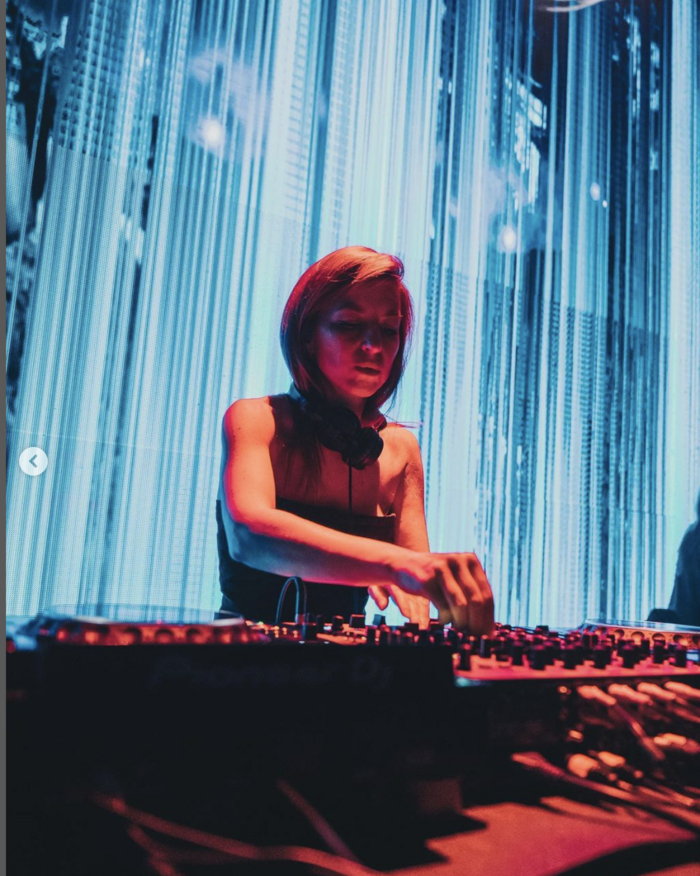
2013 represents a special year for you: you were the first Serbian artist to perform behind the console of Space Ibiza. How did you feel?
I felt really powerful. I remember that gig clearly. I was excited and nervous, but also I felt I was there to claim my power.
Since 2016 your unique sound, contaminated by acid-techno, electro, breakbeat, house and trance, has definitely surpassed the barriers of Belgrade and arrived on 6 continents, counting more than 600 shows in over 50 countries. On May 17th you will play in the Tropicana Stage of the Sunny Side Festival, which will bring a mix of avant-garde and tradition of the underground scene to the island of Malta. What can we expect from your DJ set? In general, how much does the performance context influence Tijana T’s musical selection?
I am really happy to play in this context, I’ve been considered a techno DJ and I’ve been placed on techno line ups for a long time. I’m glad it’s possible for me to present all sides of my music selection now. I’ll do my best to play a diverse and exciting set, still understanding that this is a festival for sophisticated connoisseurs and vinyl addicts 🙂
I’ve been saying recently I want to play more minimal and this might be a good opportunity. I always come with an open mind to a gig and all of my collection, cause one can never predict what will happen on the dancefloor. To quote the famous words: “Let the rhythm take you!”
I conclude by thanking you on behalf of Parkett, and asking if there is any future project that particularly excites you.
I’m working on a few projects at the moment, I can’t really share what it is, but you may hear my own productions and vocals very soon.
